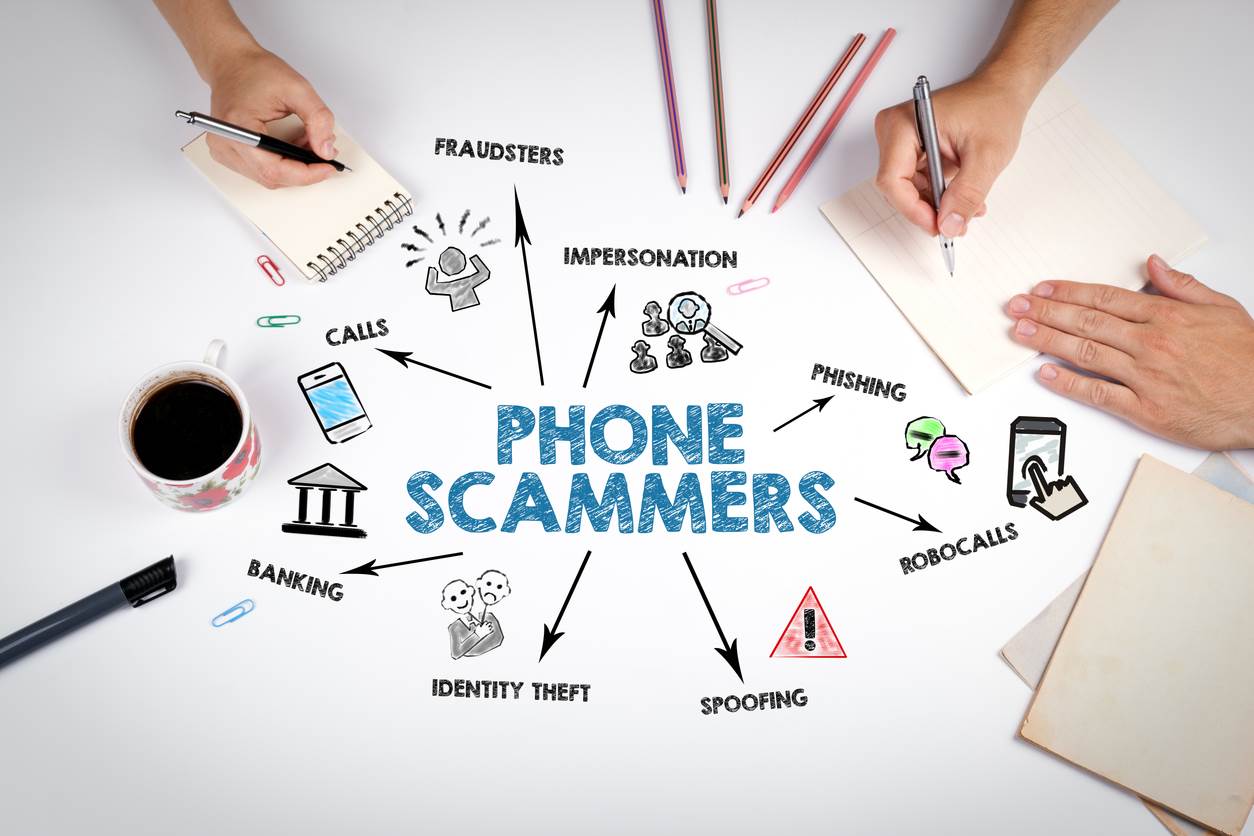Every day people fall victim to fraudulent texts and phone calls from scammers pretending to be their bank.

This past year, one of our customers got a phone call from someone claiming to be the INB fraud department. The scammer told her that her money wasn’t safe in the bank. To save her money, the scammers urgently directed the woman to withdraw all her money and deposit it at a Bitcoin stand.
The woman withdrew $27,000 cash, drove over to a nearby Bitcoin stand, and began depositing the bills. After she had inserted about $3,000, it dawned on her that she was being scammed. She thought, “This is stupid!”, and then took her remaining $24,000 back to INB and alerted us of the scam she had been roped into.
After speaking with the customer about her experience, she told us, “They just kept telling me, ‘My money wasn’t safe! My money wasn’t safe!’, and I know better than that.”
One way to differentiate a scammer from INB personnel is their tone: scammers will always create a sense of urgency so the victim doesn’t have any time to think.
In another instance, a customer got a phone call from a scammer pretending to be her granddaughter, even sounding like her. The scammer was claiming that her granddaughter was in jail and needed bail money. They instructed her to go to her bank and wire transfer the bail money.
As fate would have it, she happened to pass by her granddaughter’s workplace on the way to the bank. Then it dawned on her, “How could my granddaughter be in jail if she is at work right now?” That’s when she realized it was a scam! In this case, the crisis was averted. But scammers will stop at nothing to get you to pay.
Pro tip: we may call you if we suspect a fraudulent transaction, however, INB will never ask you for identifying information such as your username, password, or double authentication security passcode. If you’re being asked for any of this information, hang up. That is not INB!
Phishing Red Flags
Banks will never text you and:
- Ask for a PIN
- Ask for SSNs
- Ask you to share a “one time” code
Banks will never email you and:
- Ask you to download an attachment
- Ask you to fill out forms
- Misspell words or use poor grammar
Banks will never call you and:
- Ask for your address
- Use scare tactics
- Ask for your birthdate
Payment apps (like Zelle and Venmo) will never:
- Ask you to send money to yourself
- Ask for your password
- Text or call unexpectedly
According to the American Bankers Association, these crimes, typically referred to as phishing or spoofing, are the number one reported complaint to the FBI. The Federal Trade Commission’s report on fraud estimates that Americans lost a staggering $10 billion to phishing scams and other fraud in 2023—an increase of 13.6% over 2022.
It's time to expose scammers for what they really are. Always report the crime.